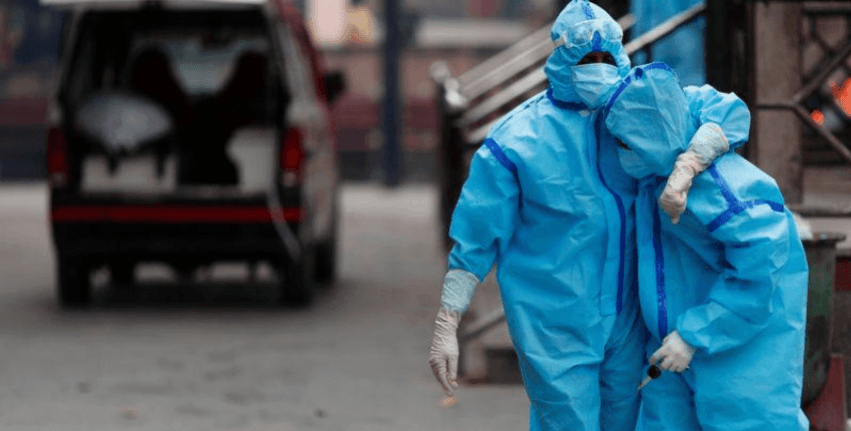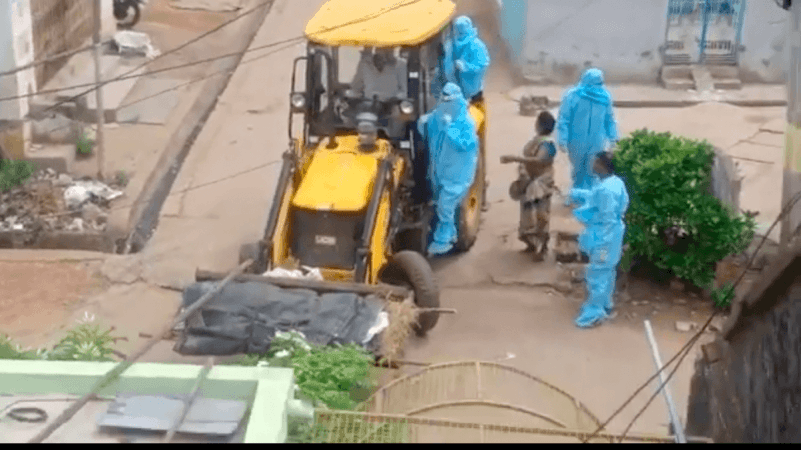On Friday, in the Palasa area of Srikakulam, Andhra Pradesh the body of a 70-year-old victim of COVID-19 was moved to a burial ground in a proclainer, shocking citizens. The man died on Thursday night due to symptoms of the virus.
Even as his test results were awaited the authorities inhumanly transported the body in a proclainer. The act came into the view of the citizenry online following which the municipal commissioner and sanitary inspector were both suspended.

Andhra Pradesh COVID-19 victim's body moved in JCB
The pandemic has lifted the lid on inhumane practices in society. The video of the incident has created an outrage in the state for the callous and insensitivity public authorities showed in the matter.
The 70-year-old man succumbed to symptoms of Coronavirus on Thursday night. Even though the man was suspected of having caught the virus, his test results are yet to come. Following the news of his death, authorities including revenue officials and health workers arrived to sanitise the locality and on Friday afternoon moved the body as the family was unwilling to collect it.

As the video of the man's body being transported to the burial ground in an earthmover surfaced, it sparked huge criticism. Many condemned the inhumanity of it all. The chief minister's office noted the incident and took action to punish the offenders. After an enquiry, the decision was taken to suspend sanitary inspector N Rajeev and municipal commissioner P Nagendra Kumar.
Two seperate shocking incidents in #Srikakulam district! Dead bodies of #Covid19 patients treated like garbage. One incident happened at Palasa, where body taken on a JCB like it was some construction debris. #AndhraPradesh #Terrible pic.twitter.com/xME1SBXGPO
— Revathi (@revathitweets) June 26, 2020
In a similar case, the body of a 70-year-old woman in Sompeta was transported in a tractor meant for garbage collection. The offenders were reprimanded in this case as well. As the pandemic in the country reaches a fever pitch, the incidents of insensitivity and inhumane behaviour only seem to be a growing common occurrence rather than a concern.














